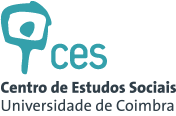Teses Defendidas
Developing change. A psychosociological action research with civil servants engaged in participatory processes.
27 de Dezembro de 2013
Democracia no Século XXI
Giovanni Allegretti
Changes in public service answer the multiple claims and pressures that, in the last few decades, have demanded profound reflections on the enhancement of democracy worldwide. In this respect, since public administrations govern social transformations through managing and implementing public policies consistent with specific political agendas, participatory devices have recently represented one of the most important international phenomena. As a result, participation compels deep scientific investigation about changes in organizational structures, processes and cultures of public administrations. My scientific activity concerns the overlapping dimensions of tradition and innovation expressed through new back-office and frontline functions within changing political and administrative rationales, which testify the key role played by civil servants. Despite the fact that scientific literature concerning participation has increased in recent decades, a specific overview of civil servants managing and implementing participatory processes, as well as the cultural relevance of their contribution to change, has been limitedly studied.
In the last few years I have proposed an exploratory investigation through the meanings of change, by intercepting participatory processes as those "symbolical objects" experienced by civil servants. By interpretively analyzing the ways they construct such meanings, I have defined different cultural patterns in order to open up areas of reflection about the possible development of participatory processes. Towards this aim, I have specifically carried out an action research with the Municipality of Lisbon based on the psychosociological ISO Methodology, and supported by an interdisciplinary framework constructed through a dialogue with critical sociology, organizational studies, political sciences, and public policy analysis.
Data de Defesa
Programa de Doutoramento
Orientação
Resumo
In the last few years I have proposed an exploratory investigation through the meanings of change, by intercepting participatory processes as those "symbolical objects" experienced by civil servants. By interpretively analyzing the ways they construct such meanings, I have defined different cultural patterns in order to open up areas of reflection about the possible development of participatory processes. Towards this aim, I have specifically carried out an action research with the Municipality of Lisbon based on the psychosociological ISO Methodology, and supported by an interdisciplinary framework constructed through a dialogue with critical sociology, organizational studies, political sciences, and public policy analysis.

